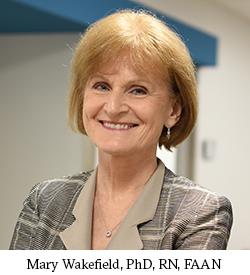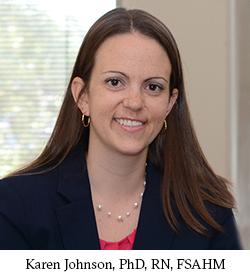An ad hoc committee under the auspices of the National Academies of Sciences, Engineering, and Medicine is extending the vision for the nursing profession into 2030 and charting a path for the nursing profession to help our nation create a culture of health, reduce health disparities, and improve the health and well-being of the U.S. population in the 21st century.

And UT Austin is well-represented in the effort.
Committee Co-Chair for “The Future of Nursing 2020–2030” is Dr. Mary Wakefield, a visiting professor at the School of Nursing as well as an alumna (MSN 1978 and PhD 1985). Committee member Dr. William Sage is a professor in the UT Austin School of Law. Dr. Karen Johnson, associate professor of nursing and a RWJF Nurse Faculty Scholar (2014–2017), is a research manager. In addition, Dr. Linda Yoder, professor at the School of Nursing, was one of only five experts to provide testimony to the committee in March. Her remarks were featured on the Academy of Medical-Surgical Nurses’ Med-Surg Moments podcast, episode 5.
The committee is building on the 2009 “The Future of Nursing: Leading Change, Advancing Health,” which set a vision for nursing in 2020. The authoring committee’s recommendations provided a blueprint for improving nurse education by proposing that nurses practice to the full extent of their education and training, providing opportunities for nurses to assume leadership positions, and improving data collection for policymaking and workforce planning.

It’s clear that Americans are not as healthy as they could be. And who better than nurses to understand and help alleviate the harmful effects of social and economic determinants of health in our homes, neighborhoods, and communities? Promoting health isn’t just providing access to health care, it’s understanding the impact of the quality of our schooling, the safety of our workplaces, the cleanliness of our water, food, and air, and the nature of our social interactions and relationships. These are just some of the stubborn issues the committee will address.
The University of Texas at Austin and the School of Nursing are excited to be able to contribute leadership and expertise to the committee and research efforts. We’re confident the resulting report will support our nation’s efforts to improve the health of individuals and communities and will support nurse leaders as they influence policy and expand health care access to improve the lives of all Americans.